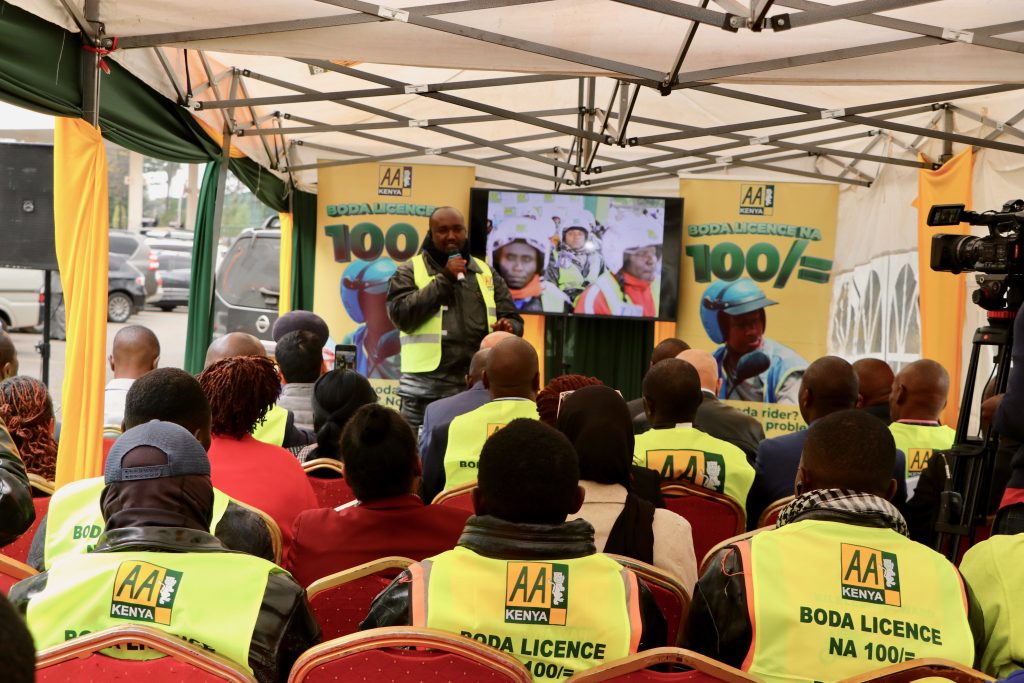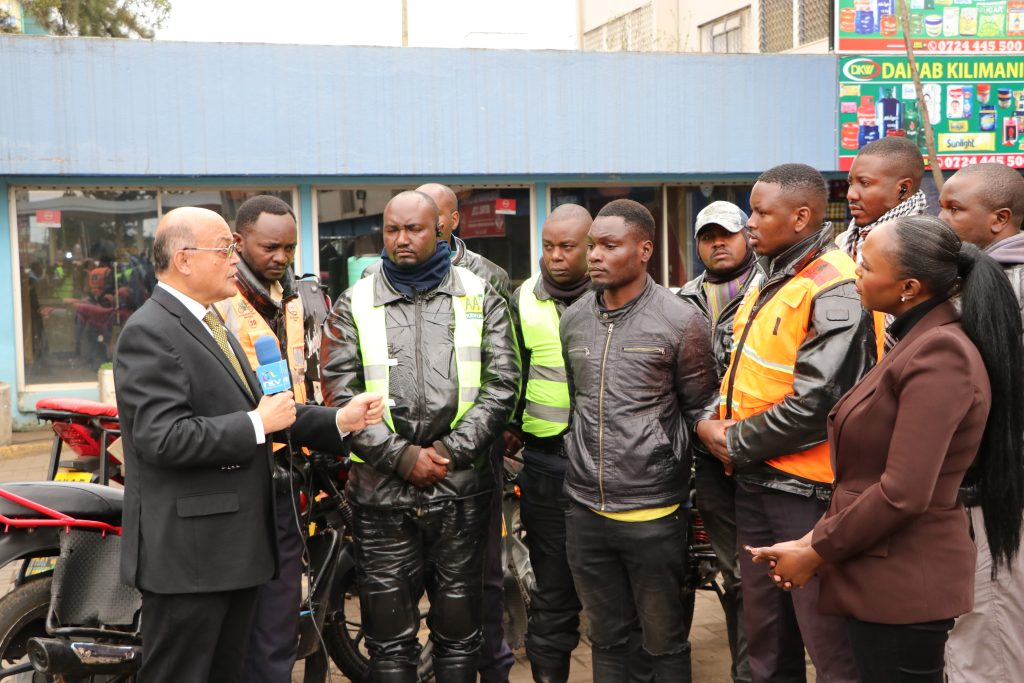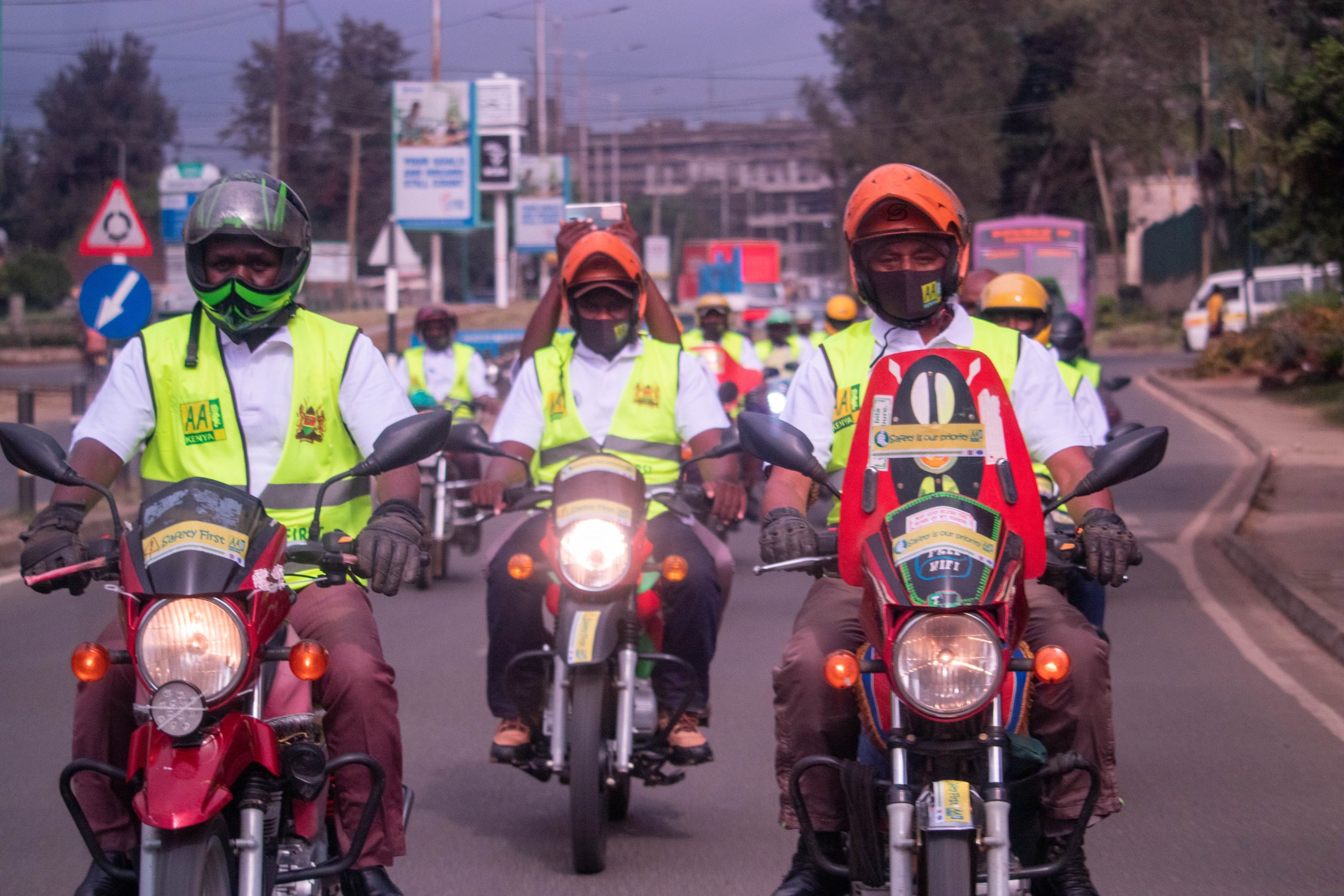By Lucy Kamau-Odote
Ask any road user in Kenya, and they’ll tell you that boda bodas are often considered death traps. Yet, they continue to rely on them, viewing these motorcycles as a “necessary transport evil.”
With over 2.2 million registered motorcycle taxis traversing Kenyan roads daily, boda bodas have become indispensable, offering affordable transport and a source of employment, especially for young men under 35. They offer quick and efficient transport when you’re late for work, an appointment, or any urgent commitment.
Their ability to weave through traffic makes them the go-to choice for last-mile transport in congested urban areas. From food deliveries to online ride-hailing services, boda bodas play a crucial role in supporting the logistics of Kenya’s bustling economy and making urban life more convenient. They also address the challenge of poor infrastructure especially up-country; in some areas, the roads are so bad that only boda bodas can access communities.
Finding a Kenyan who has never used boda boda services would be as difficult as finding one who is happy with the current tax levies 😊 , I digress. However, did you know that the popularity of boda bodas was actually through tax relief over a decade ago? In 2008, the government of the day zero-rated import duty on motorcycles of up to 250cc. This liberalized the industry and saw it grow exponentially.
However, these benefits come with substantial risks. Boda bodas often make headlines for the wrong reasons—accidents, unruly riding, flouting traffic laws, and, at times, involvement in criminal activity. While they offer affordable mobility, they also contribute to significant road safety concerns, evident in the rising number of accidents and fatalities involving riders and passengers alike.
Despite their essential role, the boda boda sector has long been characterized by a lack of regulation, safety awareness, and discipline. Many riders have not undergone formal training or licensing, and as a result, safety protocols are frequently ignored.
In 2023 alone, 1,133 riders lost their lives on the road, accounting for a staggering 26% of all road fatalities in Kenya. Although Kenyan law mandates helmet use, only 63% of boda boda operators wear helmets, and an alarming measly 15% of passengers comply. This negligence contributes to a high number of injuries, with head injuries from motorcycle accidents representing over a third of hospital admissions in these cases. Beyond the tragic human cost, the economic burden from these accidents is significant, as victims often need loans to cover steep medical expenses.
“Boda License na Mia” – A Campaign for Safer Roads
In response to these issues, AA Kenya, in partnership with the National Transport and Safety Authority (NTSA), has launched a comprehensive initiative titled “Boda License na Mia.” This program aims to train and license over one million unlicensed boda boda riders across Kenya, providing them with essential skills to improve road safety. A key principal of this campaign is the affordable training costs. Aside from being heavily subsidized, the campaign provides for daily payment of Kes.100 through USSD platform *650#, making it possible for every rider to sign up.


The training covers a broad range of topics: defensive driving, road safety, emergency first aid, financial literacy, and customer service. This holistic approach is designed not only to improve the technical skills of boda boda riders but also to foster a culture of professionalism and responsibility.
“Many riders enter the sector informally and lack the proper training and licensing,” noted Francis Theuri, Group Managing Director, AA Kenya during the official launch. “This campaign addresses that gap by offering affordable training and licensing options to enhance safety across our roads.”
The “Boda License na Mia” initiative aligns with Kenya’s National Road Safety Action Plan 2024-2028, a government-led strategy aimed at improving road safety and creating a safer environment for all road users.
Dr. Manoj Shah, Chairman of NTSA, highlights the broader impact of this initiative: “Boda bodas support a wide range of small businesses and smallholder farmers, helping to drive our economy. By investing in the training and licensing of riders, we aim not only to reduce accidents but also to uplift the sector’s image, building a safer and more reliable transport option for all Kenyans.”
This ambitious campaign signifies a key step toward addressing the challenges in Kenya’s boda boda sector. With proper training, regulation, and community support, boda bodas can continue to serve as a crucial lifeline while offering safer, more responsible transport across Kenya.


